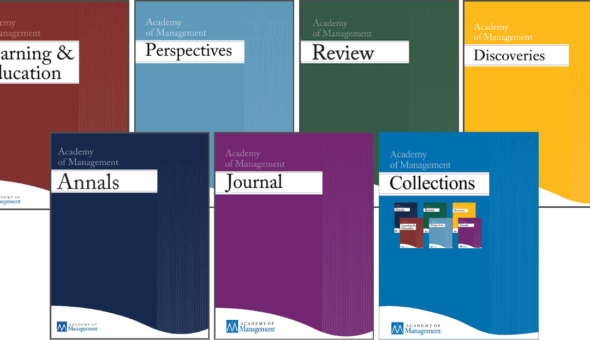It’s estimated that the world produces 2.12 billion tonnes of waste every year, a huge percentage of which ends up in landfill. At the start of Zero Waste Week 2019 we talk to Mehrnaz Tajmir, PhD student in the University of Bath School of Management, about her research in trying to tackle food waste.
You’re doing a PhD at Bath – tell us about where you’ve got to
I’m now in the third year of my PhD, and my focus is on innovation in the food supply chain, and how it affects waste. I’m looking at two areas. First, whether internal innovation can make processes more efficient, and second at external innovation. This external innovation is often driven by smaller, entrepreneurial companies who have some really exciting ideas. For example they might be making juice or condiments out of surplus fruit, or using waste fruit generated during processing to feed larvae which is then used for pet food. These kind of changes can have a systematic effect on the food chain. These smaller companies are really changing the whole conversation about waste and driving change.
How did you come to be interested in this area?
My first degree was in mechanical engineering here in Bath. In my final year, I worked on a sustainability related project looking at a community solar farm. That really sparked my interest in sustainability and I heard about Baris Yalabik’s work on food waste, and wanted to get involved. At the moment I’m still in the data collection process – it’s been a tricky area for getting data. This is all quite new and companies are still adapting, and some of them are reluctant to share their data. Focusing on the innovation side has been a good way in.
Why is it so important that we focus on food waste?
I think this is an important area because the statistics on food waste are totally horrific. A third of the all world's food produce goes to waste every year and that’s costing businesses and governments millions.
Not enough is happening to prevent this. We need to find different solutions for different areas – food waste happens in different ways. Food companies definitely need to do more – they need to work more systematically with suppliers. At the moment this isn’t very effective – they don’t always have the best communication channels.
Everyone needs to take accountability for the waste they produce. The waste that is being produced now is mostly completely edible and still fine for human consumption. It just gets dumped because of inefficiencies in the supply chain, so perfectly good products are disposed of to make way for new supplies coming in. That’s where some of the external innovation comes in – this “waste” food can be used in different ways with a bit more imaginative, joined up thinking.
Another issue is that we’ve become used to our food being perfect – we don’t want those slightly wrinkled apples or limp lettuce. It’s a bit of a chicken and egg situation – the supermarkets have given us perfection so that’s what we continue to demand, so that’s what they continue to supply – but it means a lot of perfectly edible food gets rejected.
Where is the biggest problem with waste in the supply chain?
In the UK, most of our food waste comes from consumers. But second to that is processing sites and distribution centres. And the distribution centres are directed by supermarkets and retailers. Supermarkets actually have the lowest food waste, but they’re the lynchpin of the whole process. So they’re making demands of suppliers and distributors, and they’re influencing consumers, so that’s where the real change needs to happen. Retailers are now expanding their influence and incentivising their suppliers to be zero-to-landfill. That’s not really reducing the amount of waste that is being produced, but it’s sending it to a different level in the waste hierarchy, like anaerobic digestion for example. Tesco is one of the retailers that’s really pushing in this area. They were the first to publish their waste report and have been encouraging their suppliers to do the same.
Things are getting better – factories are becoming more efficient and introducing more sustainable processes. Everyone is aware of increasing regulation related to climate change, and no-one wants to play catch up with legislation, so they are all trying to improve.
What do you think is stopping companies from taking more radical action?
I think it’s difficult for them to see the long-term gains. The short-term financial benefits have been always been prioritised and it’s not easy to convince people to invest in long term gains. We need stricter regulations or incentives that encourage businesses to change – we’ve seen how the commitments around phasing out petrol cars and reducing vehicle emissions have created lots of innovation with electric cars. We need something similar to happen in food manufacturing.
Are there any companies who you think are really leading the way in this field?
Wyke Farms in Bruton have invested millions in anaerobic digestion – all the waste from their farms is used to produce electricity for their production. Their investment and commitment is pushing that mindset through the supply chain and also inspires their competitors to up their game. It is a huge investment at the beginning, but it has started to pay off and it trickles down into other processes and creates a real culture of waste reduction and a sustainable outlook.
What are your plans post-PhD?
I’ve developed passion for this area – there hasn’t been much research done before so there’s a lot of potential for generating new data and following new ideas. I would like to stay in the field and explore these new fields of research.
Who has been your biggest inspiration?
In research, my supervisors, Baris and Mike, are huge inspirations – I really admire their work ethic and I hope that I can follow in their footsteps.
Finally, what do you like best about Bath and why is it a good place to do a PhD?
I love Bath, I have lots of happy memories of my time here as an undergraduate, but I also really love the city and the heritage. It’s a great place to be a student. The School of Management is a fantastic, supportive community. In my division, IDO, there is a real family culture – you always feel like you’re part of a group that cares for each other and helps each other.
Header image: rawpixel.com / Markus Spiske



Very soon this website will be famous amid all blog visitors,
due to it's nice posts